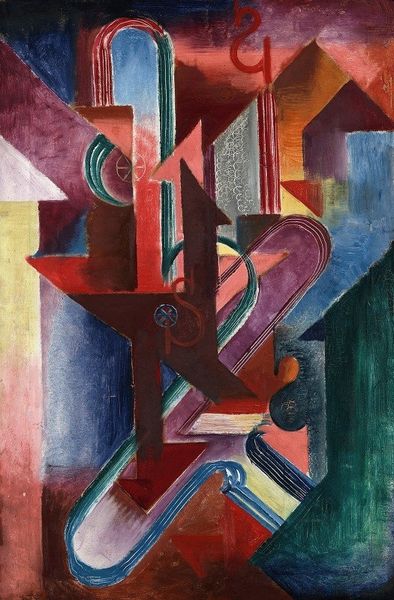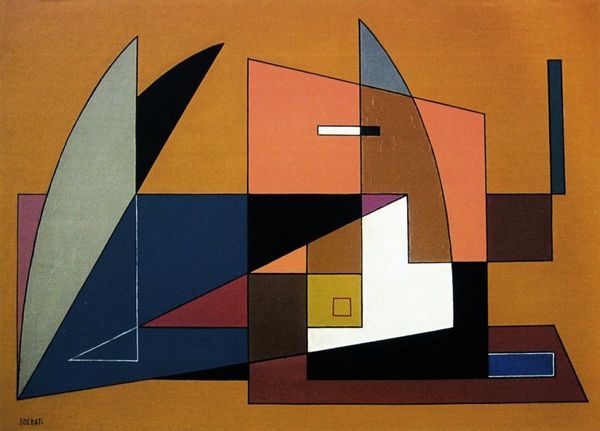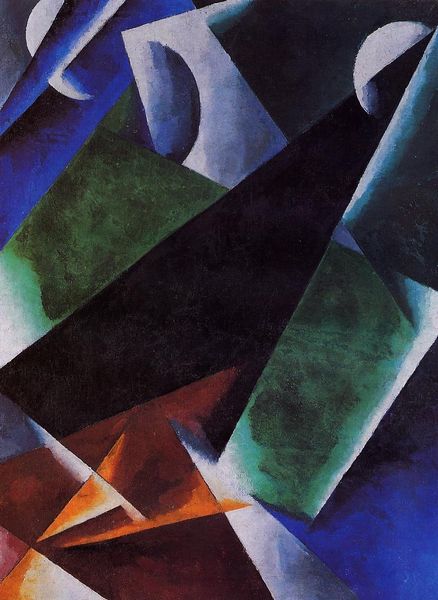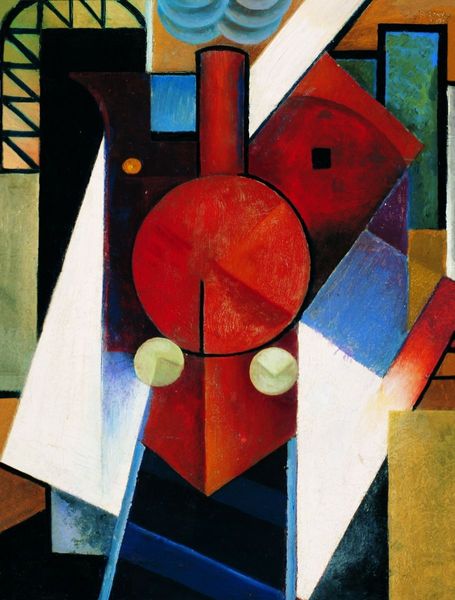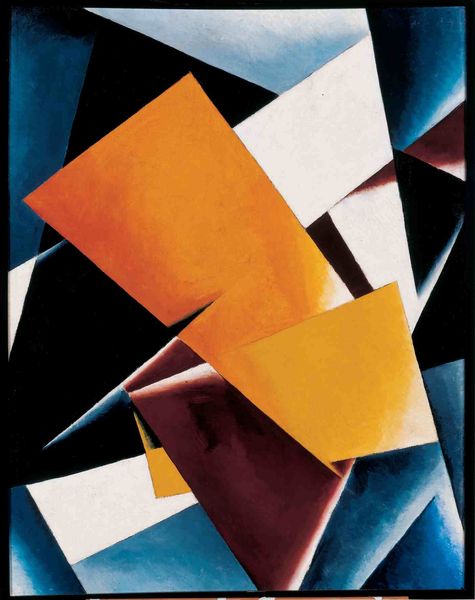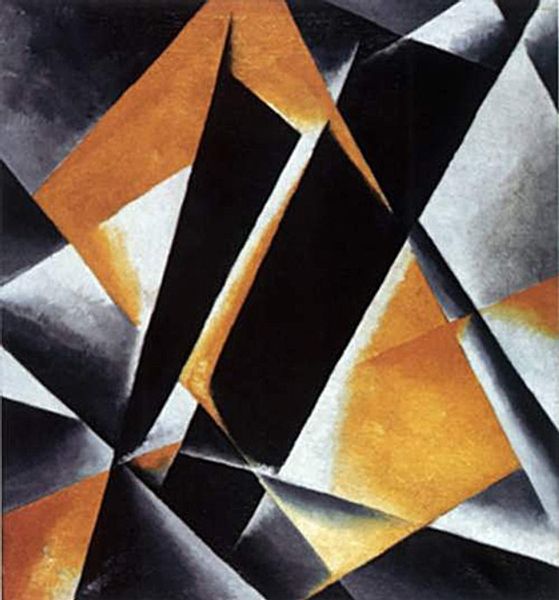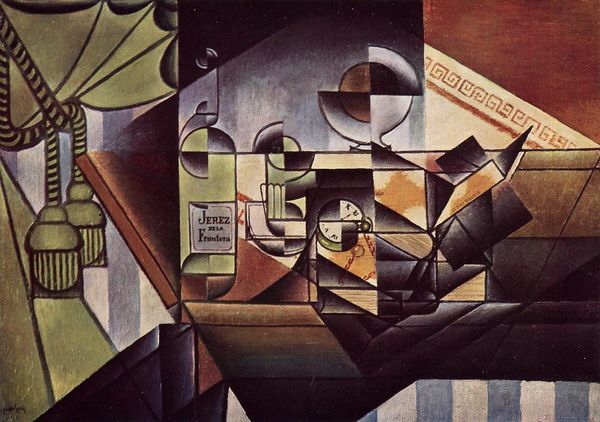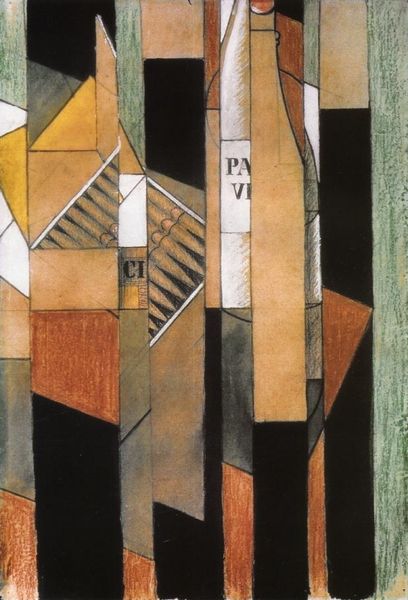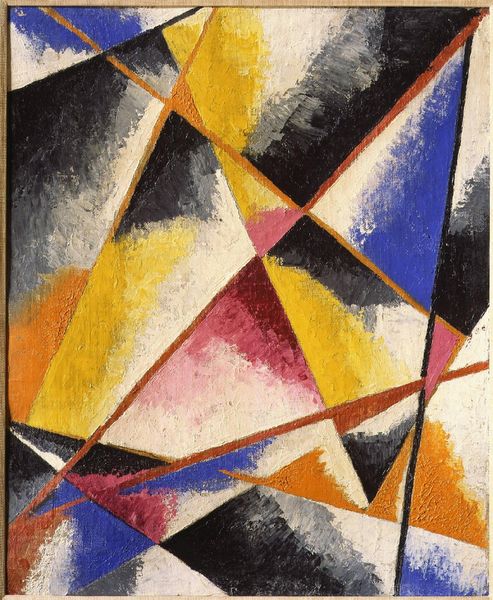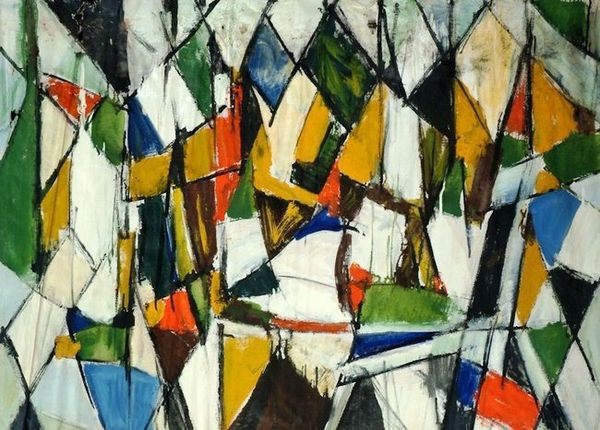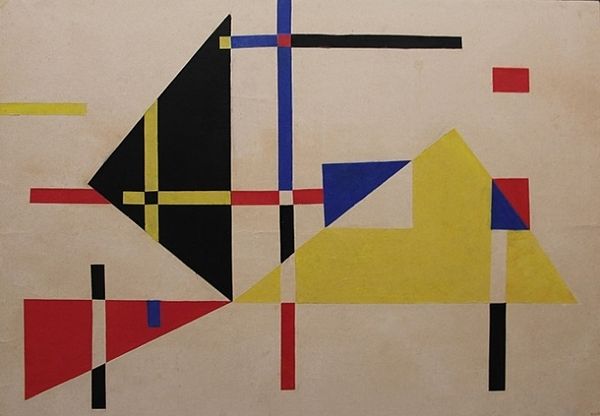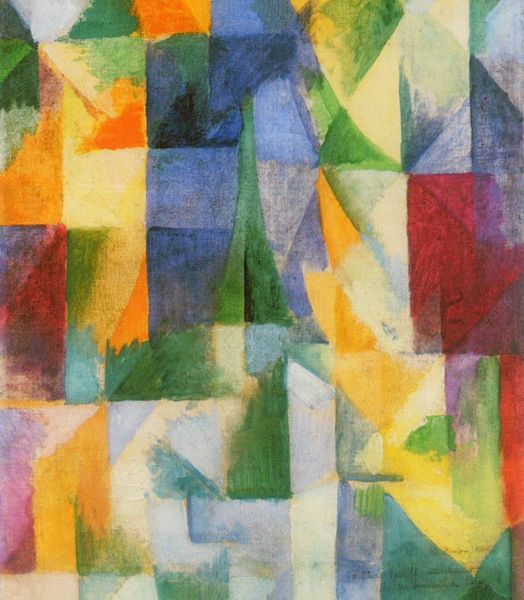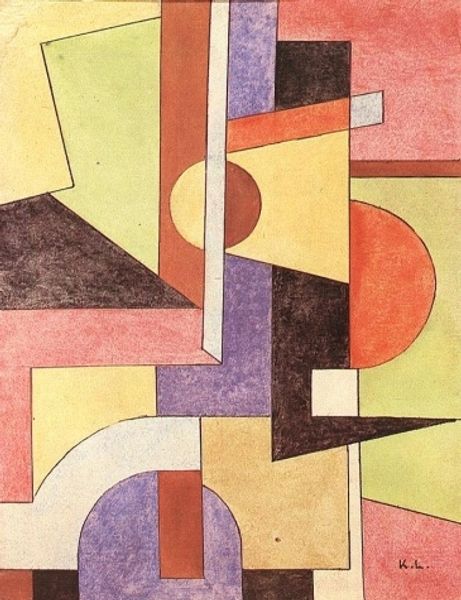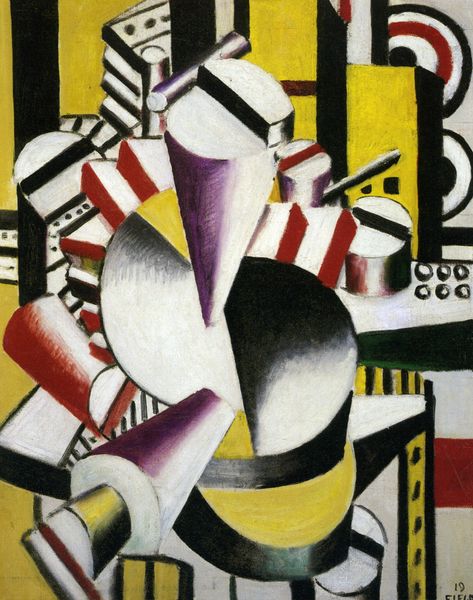
#
acrylic
#
teenage art
#
mixed mediaart
#
painted
#
possibly oil pastel
#
acrylic on canvas
#
spray can art
#
3d art
#
mixed media
#
watercolor
Dimensions: 78 x 50.8 cm
Copyright: Public domain US
Alexander Rodchenko made this painting, Non-objective composition, using oil paint. It has that Constructivist vibe, you know, about making art that serves the people. It’s so process-oriented. You can see it in the way he's put the thing together. The colors are so interesting. They are laid down so flat, but they still have a quality in the texture. If you look closely, you can see all the little bumps where the brush dragged across the canvas. It makes the surface so alive. Take that red rectangle right in the center. It's not just a flat red; there are layers of different shades. It’s like Rodchenko built it up, making the color so physical. It reminds me a little of Malevich, but Rodchenko has his own way of making something new out of the same basic idea. It shows art is a constant back-and-forth between artists, an ongoing conversation across time.
Comments
No comments
Be the first to comment and join the conversation on the ultimate creative platform.
